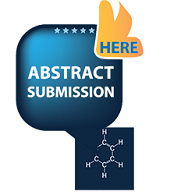Pharmaceuticalchemistry Organizing Committee
David Richard
President/COO
Robin McGraw Revelation
USA
Biography: David Richard is an American entrepreneurial engineer who has been awa ReadMore...
Research Interest: David Richard developed an interest in science during his sc ReadMore...
Panos Zavos
Director & Chief of Andrology
Andrology Institute of America, USA
Lexington, Kentucky
Biography: Prof. Dr. Panayiotis Zavos is a highly educated and motivated individu ReadMore...
Research Interest: Reproductive Specialist in various forms of Assisted Reprodu ReadMore...
Max Welling
Research Chair
University of Amsterdam and Qualcomm Technologies
Netherlands
Biography: Prof. Dr. Max Welling is a research chair in Machine Learning at the U ReadMore...
Research Interest: Drug Discovery, Pharmaceutics, Pharmaceutical science, neura ReadMore...
Shamim Ahmad
Professor
Aligarh Muslim University
India
Biography: Dr. Shamim Ahmad is a is a very well known personality in the field of ReadMore...
Research Interest: Bacterial and Fungal Infections of the Eye and their Chemoth ReadMore...
Laurent Désaubry
CNRS research director
University of Strasbourg
France
Biography: Dr Laurent Désaubry is a CNRS research director in the University o ReadMore...
Research Interest: Development of prohibitin ligands to treat cancers, cardiac ReadMore...
Canan G. Nebigil
CNRS research director
University of Strasbourg
France
Biography: Canan Nebigil is a Director of Research at CNRS. After her Pharm.D deg ReadMore...
Research Interest: Discovery and Cardioprotective Effects of the First Non-Pept ReadMore...
Franz-Josef Meyer-Almes
Professor
University of Applied Sciences Darmstadt
Germany
Biography: Franz-Josef Meyer-Almes has completed his PhD at the age of 28 years f ReadMore...
Research Interest: Protein-ligand binding kinetics
Doctor Alaa Y Ghidan
Scientist Doctor Alaa Y Ghidan, The Higher Council for Science and Technology. Nanotechnology and Microbiology. The head of Innovation and Creativity sector in Arab world.
The Arab Scientists and Acadimics union
Jordan
Biography: Scientist Doctor Alaa Y. Ghidan, I received my PhD. in Nanotechnology, ReadMore...
Research Interest: Nanotechnology
Fernando Garcilita Núñez
CEO & Founder of PetroM Corp
PetroM Corp Mexico City, Mexico | Laredo, TX, USA
Mexico
Biography: Mr. Fernando Garcilita Núñez is a seasoned executive, business o ReadMore...
Research Interest: Fernando Garcilita Núñez CEO & Founder of PetroM Corp ReadMore...
Alejandro De la Parra-Solomon
Executive Board Member at WAMS
The World Academy of Medical Sciences
Mexico
Biography: Mr. De la Parra is an entrepreneur focused on Information Technology, ReadMore...
Research Interest: Neuroscience, Regenerative Medicine, Continued Medical Educa ReadMore...
Rashid Mahmood
General Manager Technical Operations
Surge Laboratories Private Limited - Pakistan
Pakistan
Biography: Rashid Mahmood has Master Degree in Analytical Chemistry and MS in Tot ReadMore...
Research Interest: Rashid Mahmood studied Analytical Chemistry and has complete ReadMore...
Dr. M.R.Jayapal
Scientist
Yancheng Institute of Technology
China
Biography: Dr. M.R.Jayapal received Ph.D. in Synthetic Organic Electrochemistry f ReadMore...
Research Interest: His interested research areas are Synthesis and Bioassay of ReadMore...













